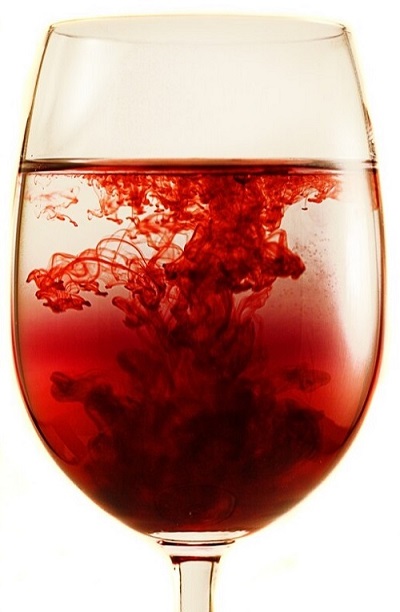FWP:
SETS == A,B; IZAFAT
WINE: {49,1}
For background see S. R. Faruqi's choices. For more on Ghalib's unpublished verses, see the discussion in {4,8x}.
For discussion and more examples of ;xamyaazah and ;xumaar , see {12,2}.
It's an 'A,B' verse, so we have to decide for ourselves how the two lines might be connected (cause? effect? parallel? contrast? etc.). But the imagery is at least somewhat clear, and the commentators spell it out. The 'yawn' or 'gape' that in the ghazal world signifies a readiness for more wine, is round like a glass, and thus is a suitable vessel for the 'wine' of the sorrow of 'intoxication/hangover'.
Here is a case in which the undecidably wide range of ;xumaar suffices in itself to make the 'mood' of the verse ambiguous. Is the mood of intense, pervasive longing something like intoxication, as Gyan Chand believes? Or is it more like the 'disaffected' quality of a hangover, as Zamin maintains?
There's also the unresolvable i.zaafat -based versatility of mai-e ranj-e ;xumaar . Is it the '(wine of sorrow) of intoxication/hangover', or is it the 'wine of (sorrow of intoxication/hangover)'? The former sounds more like a kind of sorrow, and the latter more like a kind of wine.
Such shifting, hazy possibilities help make this notably a verse of mood-- not just because it contains the term, but because it enacts the effect.

Asi:
Oh Asad, what do you think of this mood?! It is extremely pervasive. Don't consider a yawn to be a yawn-- rather, it is a single glass filled with the wine of the sorrow and trouble of intoxication/hangover. This mood of the onrush of longing is extremely pervasive.
== Asi, p. 268